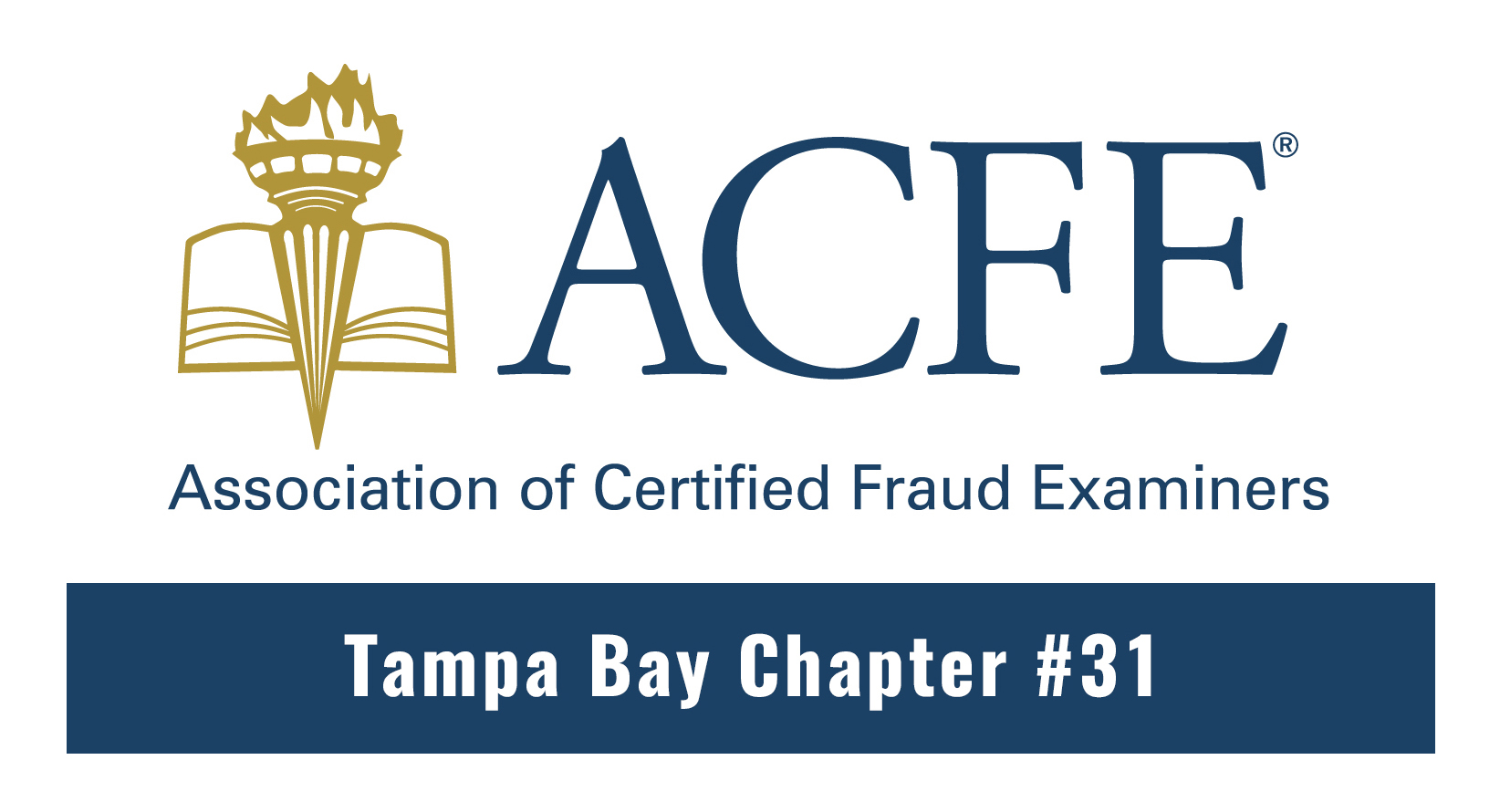In The News
Stories of interest and local news stories to our region and chapter can be found here.
Find a CFE
Need a CFE? Look here to find CFE referrals and partners.
Employment Opportunities
Employment opportunities for our chapter members are listed below:
Fraud Resource Sites
To report Cyber related fraud:
https://www.us-cert.gov/report-phishing
https://www.ic3.gov/default.aspx
Other helpful sites:
Association of Certified Fraud Examiners -Their home page provides information about the Association, the certification program, sponsored seminars and conferences and excerpts from its monthly magazine.
Auditnet Resource List – From James M. Kaplan, this is one of the most comprehensive lists of available auditing resources on the internet.
Ethics Line – EthicsLine is a toll-free number (800-500-0333) used to anonymously report allegations of ethical violations, fraud, waste, and abuse. Companies like yours subscribe to EthicsLine in order to provide your employees with someone to call if they suspect something is amiss.
Florida Division of Insurance Fraud – The Division of Insurance Fraud investigates all types of insurance fraud crimes.
General Accounting Office – The General Accounting Office is the investigative arm of Congress and is charged with examining matters relating to the receipt and disbursement of public funds.
National Consumers League’s National Fraud Information Center – The NFIC was originally established in 1992 by the National Consumers League, the oldest nonprofit consumer organization in the United States, to fight the growing menace of telemarketing fraud by improving prevention and enforcement. Internet Fraud Watch was launched in March of 1996 enabling the NFIC to expand its services to help consumers distinguish between legitimate and fraudulent promotions in cyberspace and route reports of suspected fraud to the appropriate law enforcement agencies.
National White Collar Crime Center – The NW3C provides nationwide support services for enforcement agencies involved in the prevention, investigation, and prosecution of high-tech and economic crime.
NSI’s Security Resource Net – The site features industry and product news, computer alerts, travel advisories, a calendar of events and access to an extensive virtual security library.
Forensic Science Technician – This site has a comprehensive list of Forensic Science Degrees and lots of other useful information.
Palo Alto Research Center – This site has some useful programs for analyzing complex problems.
Code of Ethics
Code of Ethics for Certified Fraud Examiners
1. A Certified Fraud Examiner shall, at all times, demonstrate a commitment to professionalism and diligence in the performance of his or her duties.
2. A Certified Fraud Examiner shall not engage in any illegal or unethical conduct, or any activity which would constitute a conflict of interest.
3. A Certified Fraud Examiner shall, at all times, exhibit the highest level of integrity in the performance of all professional assignments, and will accept only assignments for which there is reasonable expectation that the assignment will be completed with professional competence.
4. A Certified Fraud Examiner will comply with lawful orders of the courts, and will testify to matters truthfully and without bias or prejudice.
5. A Certified Fraud Examiner, in conducting examinations, will obtain evidence or other documentation to establish a reasonable basis for any opinion rendered. No opinion shall be expressed regarding the guilt or innocence of any persons or party.
6. A Certified Fraud Examiner shall not reveal any confidential information obtained during a professional engagement without proper authorization.
7. A Certified Fraud Examiner shall reveal all material matters discovered during the course of an examination, which, if omitted, could cause a distortion of the facts.
8. A Certified Fraud Examiner shall continually strive to increase the competence and effectiveness of professional services performed under his or her direction.
